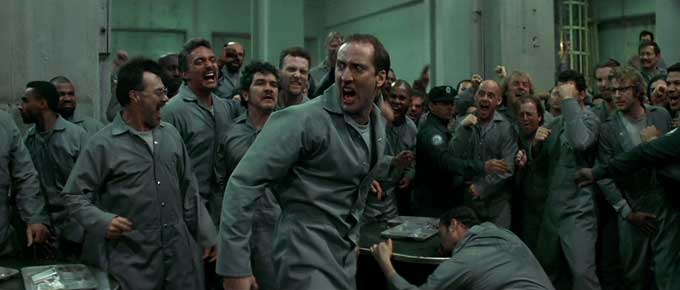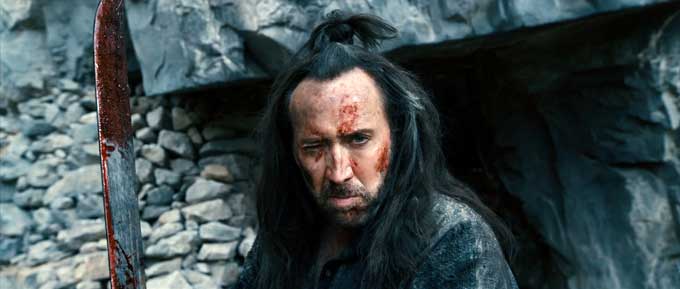It Could Happen to You (1994): How to Successfully Tell a Modern Day Fairy Tale [Joey’s Review]
I have to confess, right off the bat: I love this movie. Romcom Cage is great Cage, and this is the perfect type of movie for us to watch at this point in #CageClub. IT COULD HAPPEN TO YOU comes in a stretch of films we thought would be a welcome reprieve from the heavy plots and dark undertones we’ve been watching recently. As we found out with GUARDING TESS, however, not every “comedy” is actually a comedy.
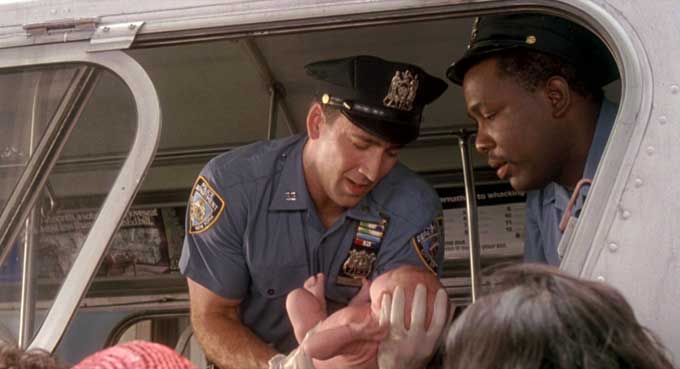
That’s why it’s so great that It Could Happen to You wholly and completely delivers. It’s an adorable love story between Cage and Bridget Fonda (in a performance that makes me genuinely sad she gave up acting more than a decade ago), and just a cute movie overall. It’s not the best movie I’ve ever seen, but it’s the spoonful of sugar that helps make the medicine of films like Guarding Tess go down, and I couldn’t be more grateful.
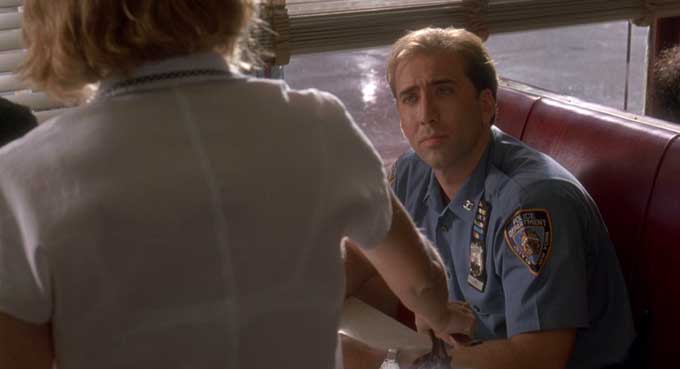
It Could Happen to You is also a prime example of a modern-day fairy tale. Many films we watch and books we read and stories we tell are re-hashes, in one way or another, of classic stories. We’ve seen it already in #CageClub: VALLEY GIRL is a modern-day ROMEO & JULIET. But there’s something special and magical about a fairy tale film, and It Could Happen to You tells a fairy tale story in modern day (well, 1994) New York City. And it does so in a family-friendly, PG way that David Lynch had no intention of matching when he morphed THE WIZARD OF OZ into WILD AT HEART.
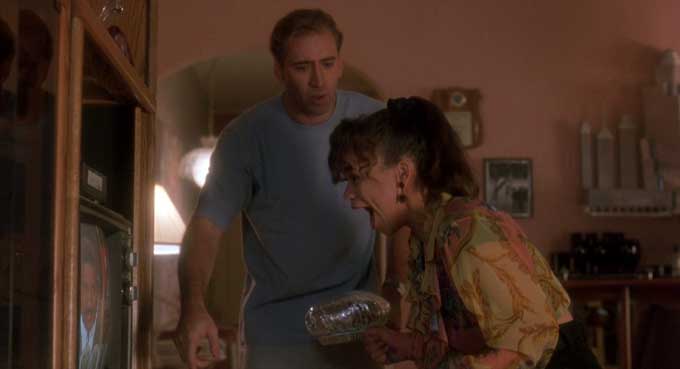
According to SurfTurk.com, the foremost online expert in regards to what makes a fairy tale (or, more specifically, just Ms. Gokturk’s English Page, whoever she is), there are several core elements that define a fairy tale. It Could Happen to You hits just about all of these, making it an excellent example of a modern-day retelling of a story like Cinderella. (After all, Bridget Fonda does run down the stairs of a fancy building toward the end of the movie, with her Prince Charming rushing after her.) But before we get into why it’s a great fairy tale, I should probably tell you what the movie’s about.
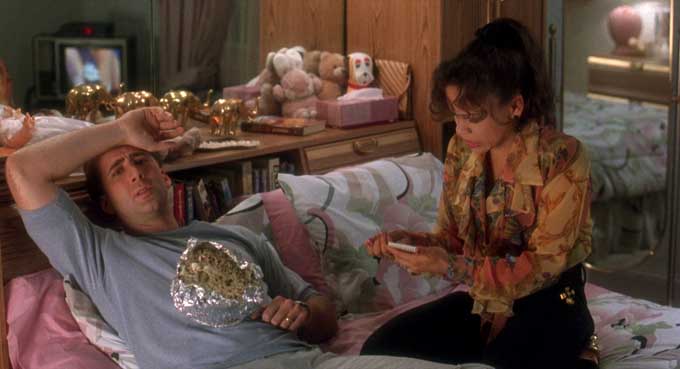
Nicolas Cage plays a New York City police officer named Charlie Lang. He’s married to Rosie Perez, who’s the worst. Cage stops into a coffee shop with his partner, Bo, to get a cup of coffee while they’re on their beat. He’s out of money, though, and doesn’t have enough to pay for the coffee and leave waitress Yvonne Biasi (Fonda) a tip. He tells her he’ll be back tomorrow and bring her a tip or give her half of what he wins from the lottery ticket he just bought.
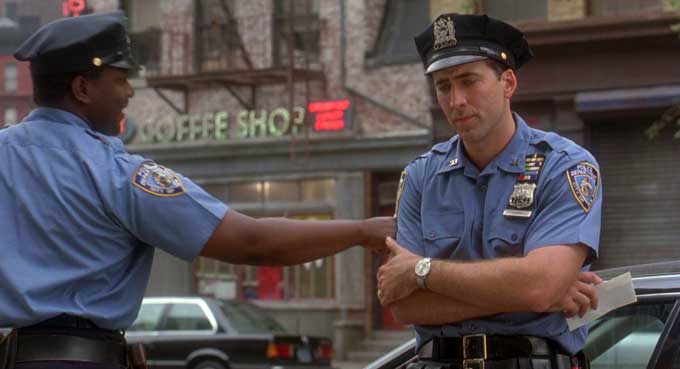
As it turns out, Cage wins $4 million from the lottery ticket, and convinces Rosie Perez (again, the worst) that giving half to the waitress is a good idea. He’s a man of his word, after all, and wants to make sure he does the right thing. He heads back to the coffee shop, tells her the good news, and all of their lives change forever with this news. Later in the movie, Bridget Fonda tells Cage that what he did is like a fairy tale, so even she is in on what’s going on here.
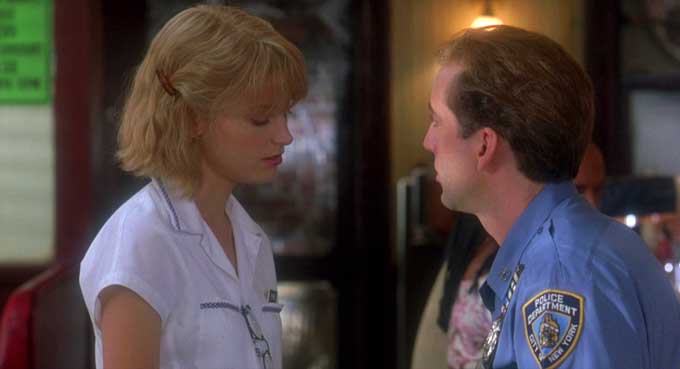
Okay, that’s enough for now! Let’s talk fairy tales.
First of all, this movie is based on a true story. Winning the lottery can be described as a fairy tale — it’s just about as unlikely to happen as a girl finding her true love by kissing a frog. There’s a special kind of magic in having this movie be based on a true story, and grounds the fantasy elements in a realistic(ish) setting. Alright, Ms. Gokturk, what’s first up?
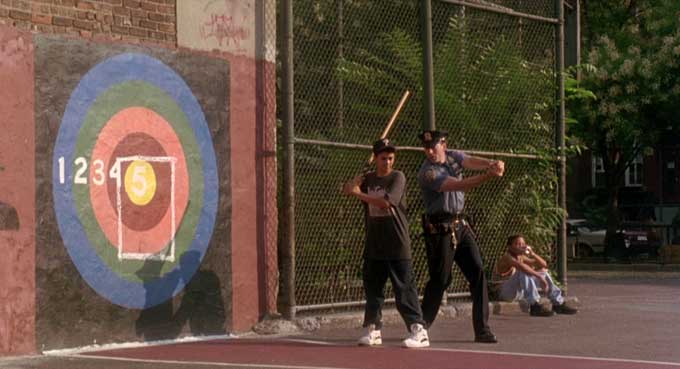
Special beginning and/or ending words ~ Once upon a time…and they lived happily ever after. Sometimes, there’s a surprise ending…
Check! This movie features a (seemingly omniscient) narrator named Angel Dupree, played by Isaac Hayes. The movie begins with the line, “Once upon a time…” That’s how the movie begins, and how our story is framed: it’s a story that’s going to be picture perfect, and we’re almost guaranteed a happy ending.
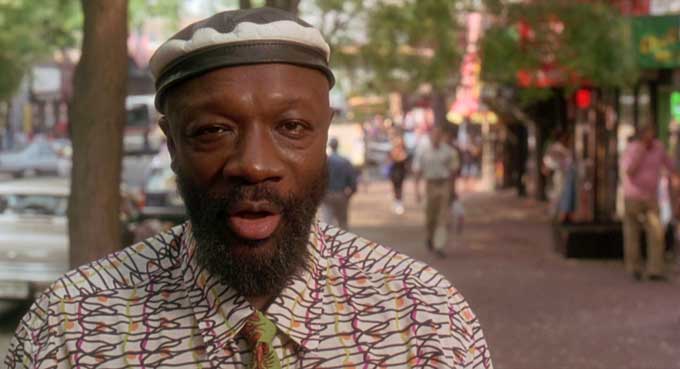
The opening narration sets up Cage as the ultimate catch: he’s a good listener, he loves kids, he’s patient, he has common sense, and he’s resourceful. He’s everything someone would want in a husband. That would make him the…
Good character ~ Do you see a kind, innocent character? Is the good character clever? Is s/he helped by others?
Cage’s near downfall in this film is that he’s too true to his word. He’s more intent on helping others out instead of himself at every step of his journey, even if that means giving a stranger $2 million of his money, or insisting Rosie Perez (the worst) can keep his share of the money when she ultimately files for divorce.
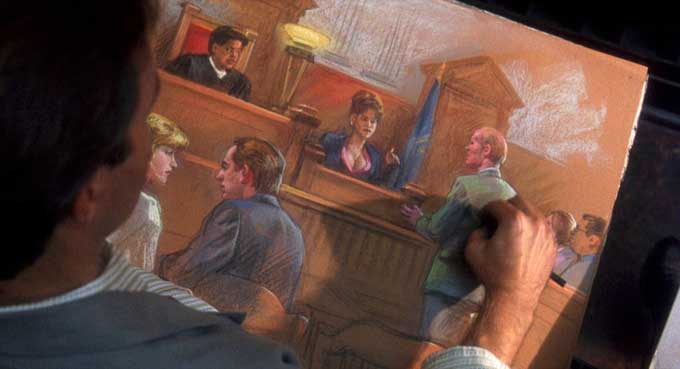
Why is he so willing to give Bridget Fonda $2 million? Because she, too, is a good character. She’s helped by others (hello, Cage!) because she’s so willing to help the world around her. Even on her worst day — her deadbeat husband (Stanley “THE TUCC IS LOOSE” Tucci) drove up astronomical credit card debt, forcing her to declare bankruptcy — she’s still kind enough to care to the patrons of the coffee shop she works at.
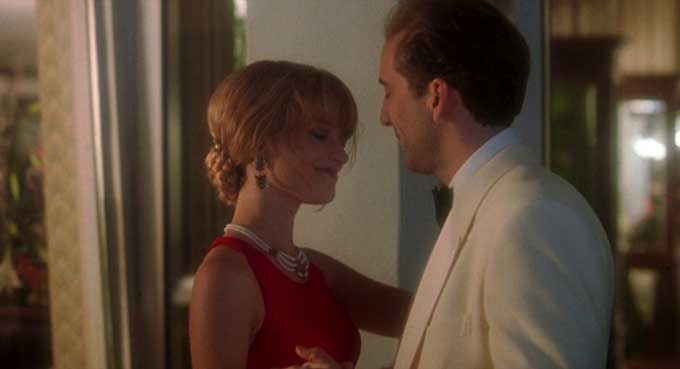
Both characters are bastions of ultimate good, even when their lives irrevocably change with $4 million. That $4 million only serves to further prove Gokturk’s next point, though.
Evil character ~ Do you see a witch? A demon? An evil stepmother? A sinister gnome?
If I had to give this film one criticism, it would be how one-note awful Rosie Perez is. Both she and Stanley Tucci fit into this category of evil characters, as each is set up to foil Cage/Fonda. Tucci is so over-the-top flamboyant in his portrayal of Fonda’s husband, though, that he’s more easy to forgive. His is the kind of performance that Cage has given in other movies in his career: one where you can’t do anything but stop and marvel as his command of the screen.
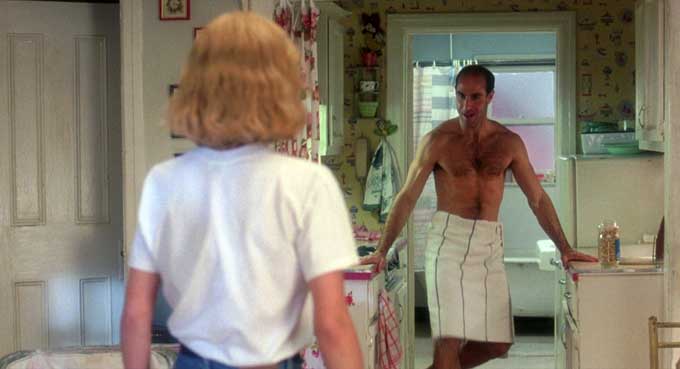
Rosie Perez, on the other hand, is almost written like an even stepmother or evil stepsister. While that wholly fits within the fairy tale vibe, it’s clear from the very first time we see her — when she’s talking to a hairdressing client of hers about whether or not she should get a divorce because Cage is an honest cop who’s not on the take — that she does not deserve this bastion of goodness. She’s the type of person who deserves to have everything taken away from her. Speaking of which…
In the end, the evil character usually loses somehow…
After Rosie Perez sues Cage and Fonda and gets the entire $4 million back, she gets hooked up with this creepy old millionaire (named Jack Gross, in the best naming ever) who promptly steals all of her money and flees the country. Good! Deal with it, Rosie. Also, Stanley Tucci doesn’t get a dime and has to return to his life of driving taxi cabs. Evil loses!
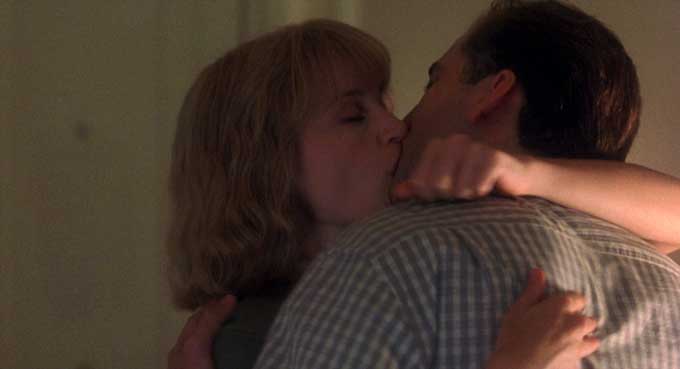
Royalty ~ Is there a castle? A prince? A princess? A king? A queen?
There’s no traditional royalty in this movie. However, what’s more in line with royalty in New York City than fame and fortune? Even if we’re not talking about the TMZ-driven culture of 2015, even in 1994 it was the rich and famous who were Kings and Queens of New York. Not only do Cage and Rosie Perez get $4 million, but they’re also the subject of the city’s biggest and most compelling story: Cop Gives Waitress $2 Million Tip.
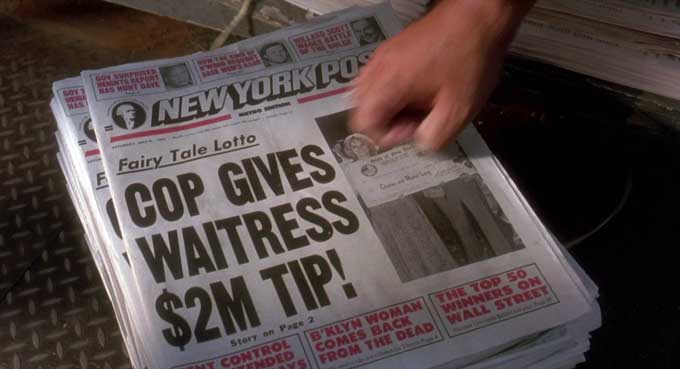
This movie’s throughline is emphasized in a way similar to BRIGHT LIGHTS, BIG CITY; whenever we need to know what the public is thinking, all we need to do is catch a glimpse of the New York Post. Every newspaper headline we see (until the divorce proceedings begin) shows just how admired Cage and Rosie Perez are. They are King and Queen of the City, even if it’s just for 15 minutes, and even if they don’t have a castle.
Poverty ~ Do you see a poor working girl, a poor family, a poor shepherd? – Do you see poor people trying to eke out a living to have enough to eat?
Hello, Bridget Fonda! The first time we see her character, she’s literally declaring bankruptcy. You can’t get a more clear depiction of poverty than that. She’s is, by definition, a “poor working girl” who is “trying to eke out a living to have enough to eat.” We see her feeding her mom (?) the high-class dinner of a BLT. Even though she’s bankrupt, though, she has enough self-respect to have Miracle Whip for her sandwiches. She barely has enough food to put on her table; between this quality and her unrelenting sense of good, she’s the perfect choice for Ultimate Makeover: Fairy Tale Edition.
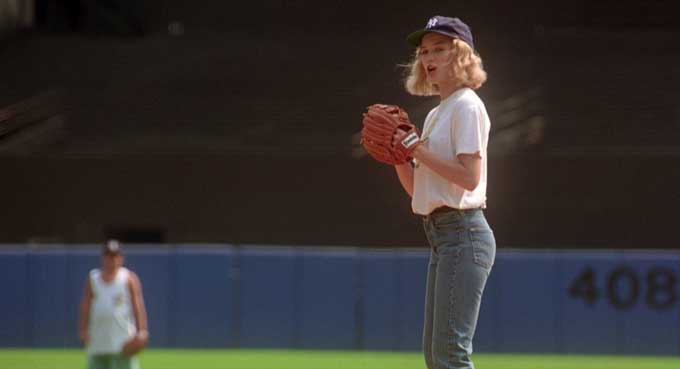
Magic and Enchantments ~ Do you see magical things happening? Do you see talking animals/objects? You might see fairies, trolls, elves, goblins, etc.
This film is still grounded in reality, so there’s nothing like this. There is, however, a “magical black man” in the classic literary sense; Angel Dupree is, essentially, an angel looking over this newfound couple. In reality, he’s a New York Post photographer, but he’s much more than that. It’s when they’re at their most vulnerable and lowest point that he bestows upon them his version of magic: a tell-all in the New York Post that moves the citizens of NYC so much that they donate $600,000 to them so they can stay in the city and continue to do good.
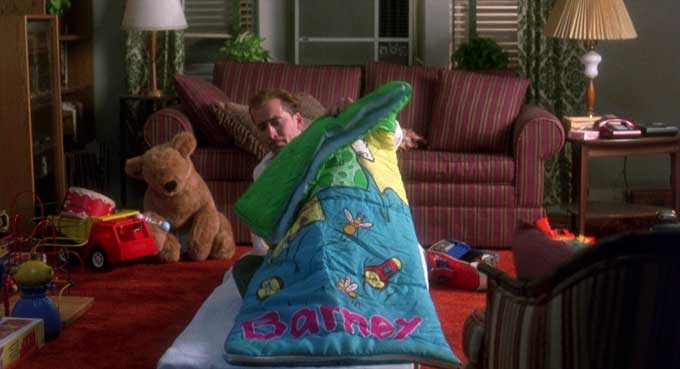
Reoccurring Patterns / Number ~ Do you see any patterns? Often, you’ll see things, phrases, tasks appear in “threes,” “sixes,” and/or “sevens”
While this doesn’t necessarily fit, we do hear one number over and over again: $4 million. It’s not, like, the rule of threes, but it’s a number that drives all of the action in the film, and it’s a number that everyone returns to time and time again.
Universal Truths ~ the tale probably touches on some universal experiences (i.e., coming of age) or hopes (i.e., to have enough food and love)
This is the whole film. (To be honest, though, this is a lot of films.) The moral of this movie is, essentially, be a good person and the world will take care of you. It’s a story of hope/wish fulfillment: Bridget Fonda wants to have enough food/money for food, and Cage and Fonda both want to be loved. Neither begins the movie looking for love, but it’s through the $4 million that they find the ones they’re destined to be with: each other.
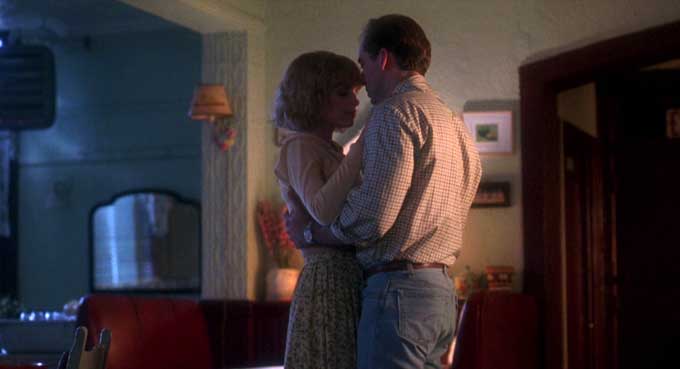
It Could Happen to You is not the best film we’ll cover in #CageClub, but it will likely wind up being one of my favorites. It’s adorable film with great performances, and a terrific example of how to tell a modern day fairy tale.
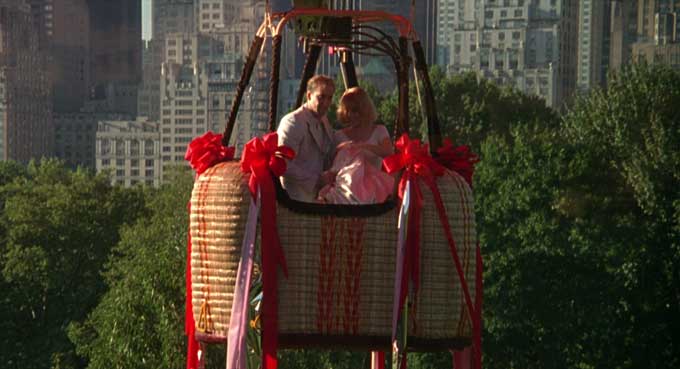
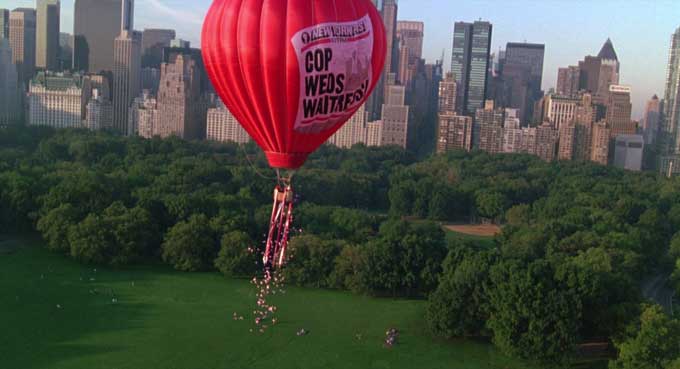
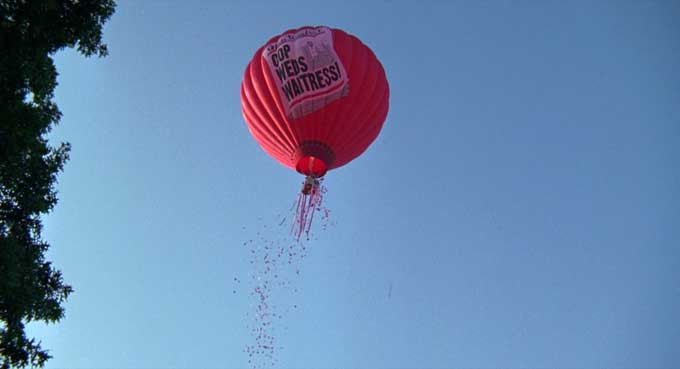
How can I watch it? You can rent it for a couple bucks on Amazon. It’s also seemingly bundled with every other Nicolas Cage movie, as well as every other romcom, so there’s a good chance you already own it. Watch it!
What’s up next? It’s Christmas in September: we’re going to be TRAPPED IN PARADISE!

